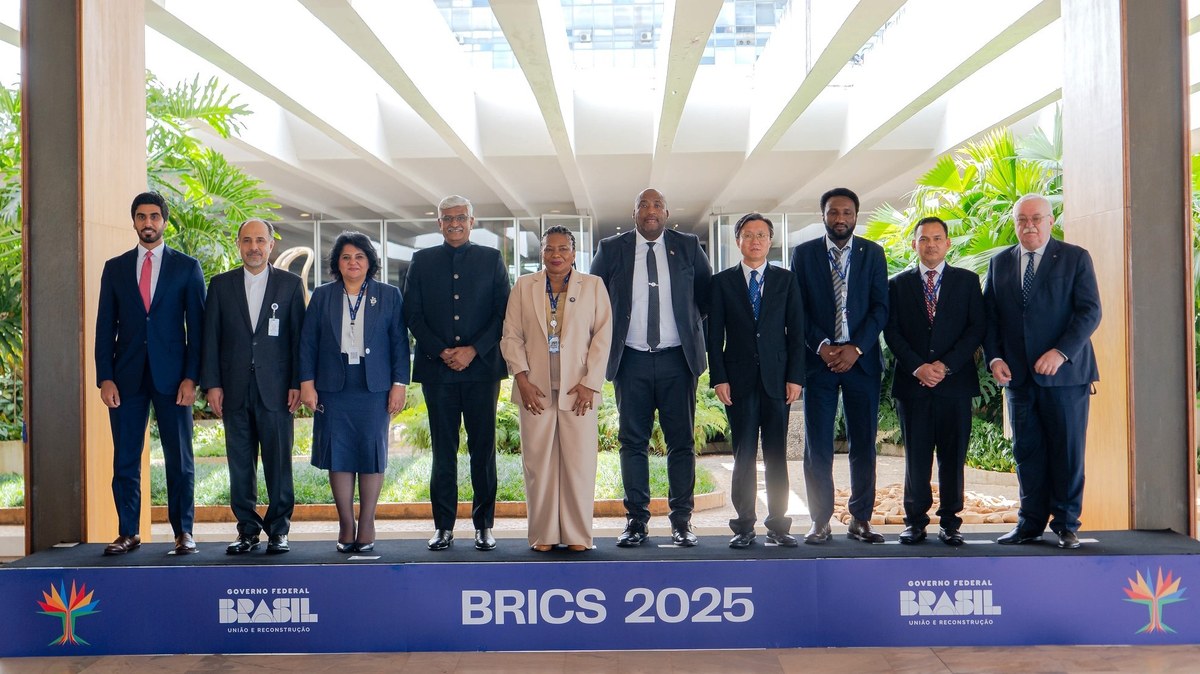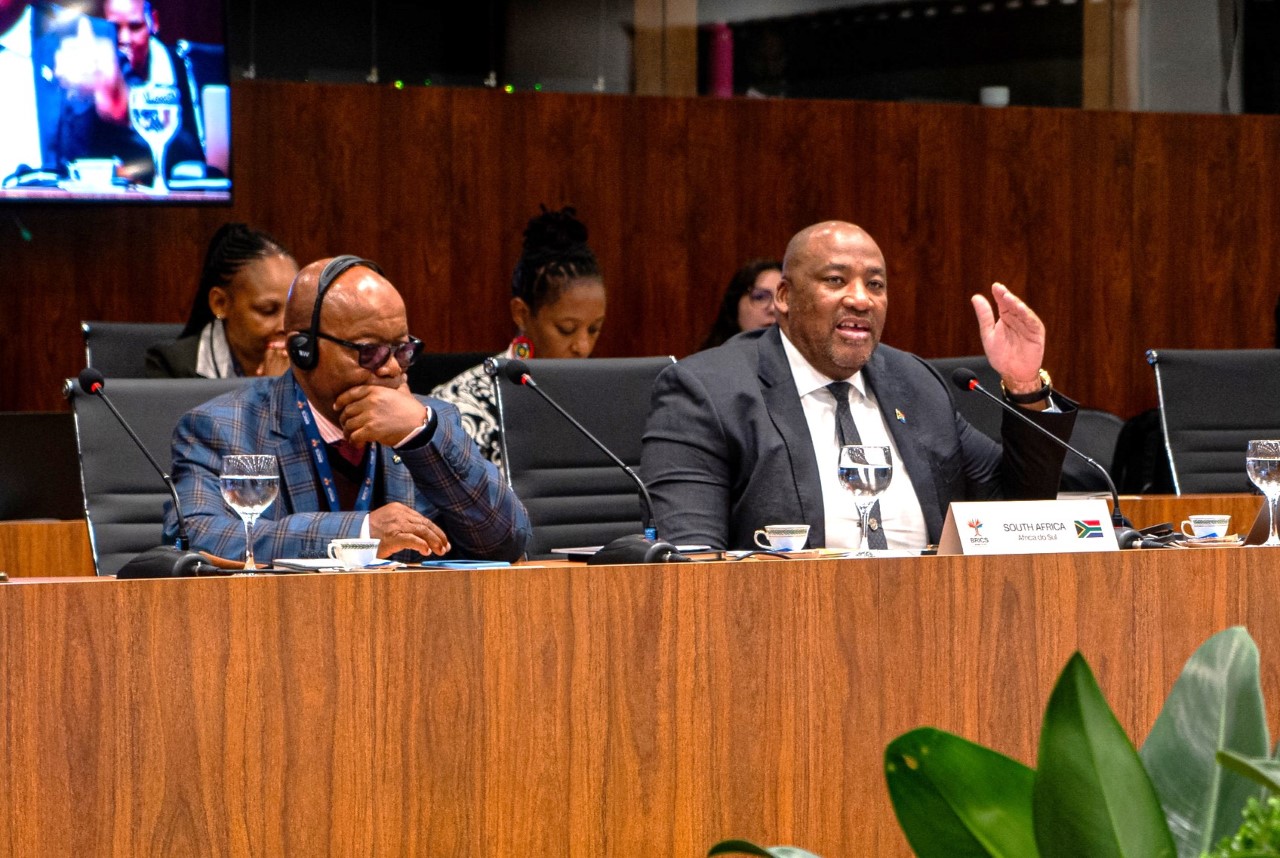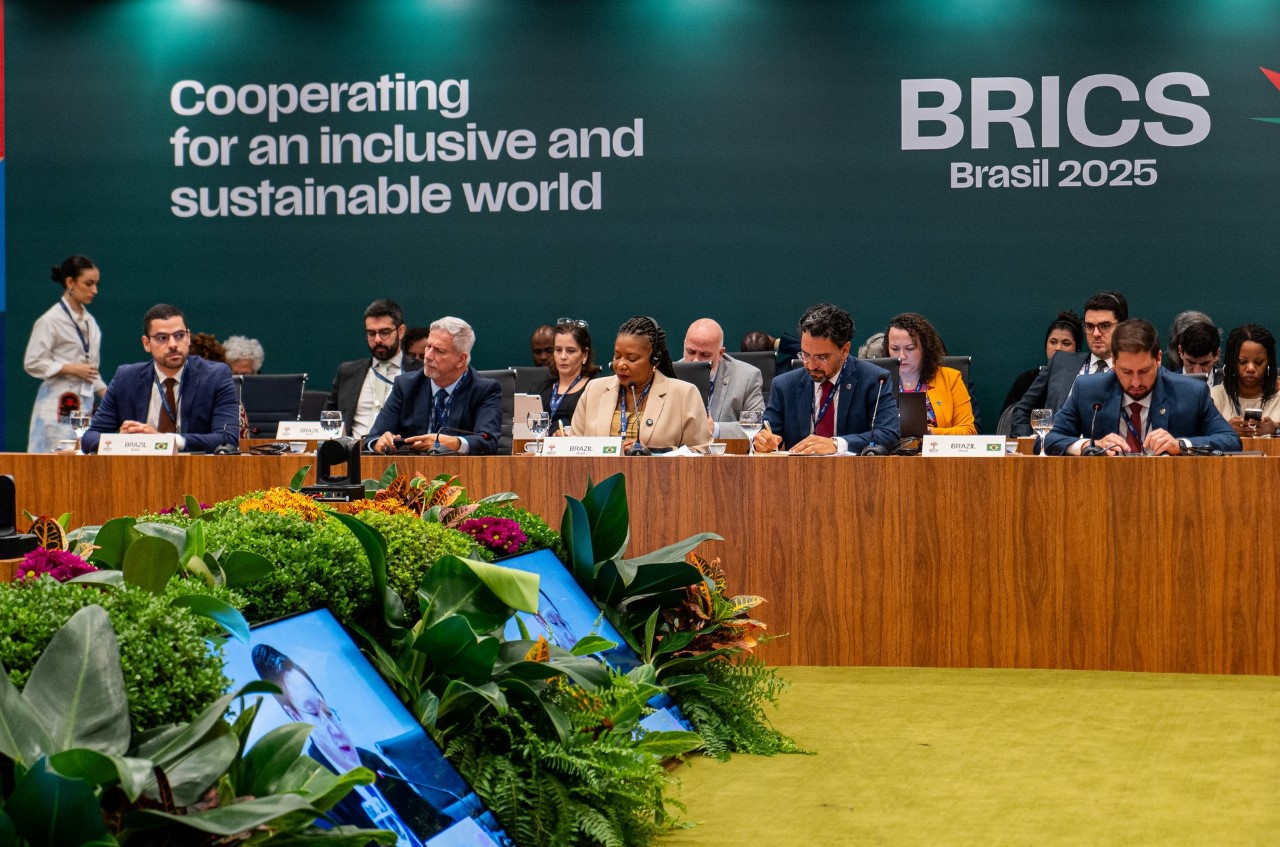Culture and climate: BRICS expands cooperation, highlights role of culture as driver of sustainable development
BRICS ministers advance cultural alliances as a pillar of sustainable development, advocating for the repatriation of cultural assets, creative economies, and cultural efforts in response to the climate crisis

By Leandro Molina / BRICS Brasil
The 10th Meeting of BRICS Ministers of Culture, held on Monday (May 26) at the Itamaraty Palace in Brasilia, marked a new chapter in cultural cooperation among member states with the approval of a joint declaration reaffirming culture as the foundation for more inclusive, sustainable, and multipolar global governance. The document, titled the "Brasilia Declaration", reflects the consensus reached by BRICS members — alongside newly incorporated Indonesia — and lays out ambitious guidelines for the coming years, ranging from creative economy strategies to cultural heritage protection in the face of climate change.
Brazil’s Minister of Culture, Margareth Menezes, opened the event by highlighting the symbolism of holding the meeting in Brasilia, a UNESCO World Heritage Site, and emphasized the importance of the current geopolitical moment. “BRICS is not just an economic group, but a dialogue platform that values cultural diversity as a driving force for fairer and more balanced development,” she stated. Menezes recalled that under the leadership of President Luiz Inácio Lula da Silva, Brasil has been working to strengthen multilateralism, citing the country’s recent leadership of the G20, its presidency of BRICS in 2025, and preparations to host COP30 in November.
The meeting reiterated the BRICS spirit of consensus, mutual respect, and solidarity, in line with commitments made since the signing of the Agreement on Cooperation in the Field of Culture in 2015, renewed through the 2022–2026 Action Plan. The document underscores the need for ongoing, inclusive dialogue between BRICS members and other Global South countries, aimed at strengthening cultural diversity as a foundation for sustainable development. The ministers reiterated the role of culture as a driver of economic growth, innovation, and social cohesion. They also emphasized the intrinsic value of culture in the face of the challenges and opportunities posed by information and communication technologies (ICTs), particularly with the advancement of artificial intelligence (AI) tools.
Among the commitments made was the creation of a BRICS platform for cultural and creative industries under the bloc’s Working Group on Culture. This initiative aims to promote the exchange of artists, joint projects, and the dissemination of cultural content, with support from the New Development Bank (NDB). The declaration acknowledges the cultural and creative sector as a strategic component for job creation, income generation, and the development of innovative skills — key drivers of the member countries' economies.
The document underscores the need for ongoing, inclusive dialogue between BRICS members and other Global South countries, aimed at strengthening cultural diversity as a foundation for sustainable development. The ministers reiterated the role of culture as a driver of economic growth, innovation, and social cohesion
AI governance was another central topic. The document reaffirms the need for AI to be ethical, safe, inclusive, and development-oriented, in full compliance with national and international laws, human rights, and cultural and linguistic diversity. The ministers stressed the importance of ensuring that the datasets used to train AI models — including language models — reflect and preserve this diversity. They also advocated for a fair digital environment that properly compensates creators, artists, and rights holders, ensuring the protection of intellectual property and artistic freedom.
The repatriation of cultural property stolen or removed from their countries of origin in colonial or conflict scenarios also took center stage in the declaration. The ministers reaffirmed that returning such collections is a moral imperative and a prerequisite for historical justice. Brasil announced it would host an international seminar on the topic later in 2025, bringing together experts, governments, and civil society to advance common guidelines. “Restitution is not merely symbolic; it is a fundamental step toward rebuilding the collective memory of peoples whose heritage was plundered,” said Minister Margareth.

Amid the discussions on cultural cooperation within BRICS, South Africa’s Minister of Sports, Arts and Culture, Gayton McKenzie, emphasized the significance of returning cultural artifacts. He argued that the repatriation of looted objects from colonial periods goes beyond monetary value—it is a matter of dignity and historical justice. His remarks reflect a growing alliance among Global South countries in defending their cultural heritage and strengthening their creative economies, which are becoming key priorities on the BRICS agenda. “The reason this matters to us is not just the financial value of bringing back the artifacts and items stolen from our country. It’s about dignity,” he said.
Another important aspect of the declaration is the recognition of culture as a core element of the global sustainable development agenda. The ministers pledged to advocate for the inclusion of culture as a standalone goal in the future Post-2030 Development Agenda, in line with the principles of the UNESCO World Conference on Cultural Policies and Sustainable Development (MONDIACULT 2022). The connection between culture and climate change was also highlighted. BRICS countries committed to protecting cultural heritage from climate-related risks, developing adaptive strategies that incorporate traditional knowledge and local systems of understanding. In this context, ministers urged developed countries to fulfill their climate financing commitments, particularly regarding the preservation of cultural heritage in developing nations.
The protection of traditional knowledge and cultural expressions also received special attention. Participants called for stronger international legal frameworks to safeguard this knowledge and highlighted the importance of ongoing discussions at the World Intellectual Property Organization (WIPO) on the subject.
Efforts to strengthen cultural ties among BRICS countries will also materialize through festivals and cultural alliances. Brasil announced that it will host the BRICS Film Festival in the second half of 2025, showcasing national film productions from member countries and promoting cultural exchange, mutual understanding, and business opportunities in the audiovisual sector. The ministers also encouraged the creation of a permanent calendar of cultural and heritage events to deepen connections among BRICS peoples.

Lastly, the declaration reaffirms a shared vision of culture not only as essential to strengthening national identities but also as a tool for economic development, environmental sustainability, and the construction of a fairer, more inclusive world. In this spirit, the BRICS Ministers of Culture renewed their commitment to deepening cultural cooperation and coordinating common positions in multilateral forums, always highlighting perspectives from the Global South and the diversity of paths toward sustainable development.
During the meeting, Ambassador Laudemar Gonçalves de Aguiar Neto, Secretary for Trade Promotion, Science, Technology, Innovation, and Culture at the Ministry of Foreign Affairs, reinforced the vision of BRICS as a transformative force in the global order. “We are not here merely to integrate into the international system, but to help shape new governance—one that is more representative of the Global South,” he said. He emphasized the creative economy as a driver of social inclusion and argued that culture should be recognized as the “fourth pillar” of sustainable development, alongside the economic, social, and environmental dimensions.
As concrete outcomes, in addition to the BRICS Film Festival planned for the second half of 2025, the participating countries agreed to develop a best practices guide for copyright protection in digital environments and to expand existing departmental alliances, such as museum, library, and film school networks within the group. The declaration will be formally presented at the BRICS Leaders’ Summit in July, where heads of state and government are expected to endorse the cultural guidelines approved by the ministers.
In her final remarks, Minister Margareth Menezes celebrated the spirit of collaboration that shaped the discussions. “This declaration is proof that when we raise our voices together, culture can be a powerful force for peace, justice, and social transformation,” she concluded. The gathering made clear that in a world marked by overlapping crises, BRICS sees cultural diversity not as a difference to be overcome, but as a foundation for a shared future.